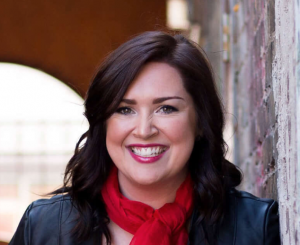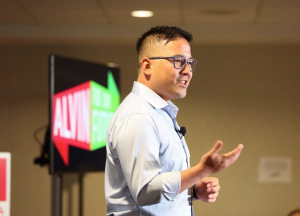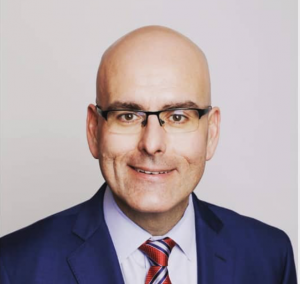On Sunday, the 24th of November, throngs of people gathered at the Queen Elizabeth Park Community and Cultural Centre to watch Ontario Liberal Leadership Debates. The event was hosted by the Oakville Provincial Liberal Association.
Ontario Liberal Leadership Debate Candidates
Moderating the Ontario Liberal Leadership Debate was Kevin Flynn, former MPP of Oakville. "In the last election of 2018, people sent us a pretty humbling message telling us that we have to do better or they will take a chance on Doug Ford. They did just that and they realized they made the wrong decision, now they're looking at alternatives. It's up to us as a party to put forward the best people we possibly can to lead the party," said the former Minister of Labour.
"I wanted people to understand the quality of candidates in the running. We were able to arrange a meeting right here in Oakville for the local people to come to see the candidates putting their names forward. People think that what they say or think doesn't matter, but an event like this shows people that they have a choice of supporting and being a part of the process."
As the Ontario Liberal Leadership Debate began, candidates put their advocacy forward, each illustrating their focus(in less than 30 seconds) for their campaigns:
- Kate Graham: "People and their wellbeing. Focusing on things that we know get in the way of people living an amazing quality of life in Ontario. Making Ontario Carbon Neutral, making life more affordable, and empowering people and communities."
- Alvin Tedjo: "Fight for our future. Ideas for the future include ensuring that education we have is second to none, ensure that we have universal childcare, ensure that we have a basic income that creates a floor for everyone in Ontario to stand on."
- Micheal Coteau: "We need to rebuild this party by making sure we hire the right people, get the right policies pushed forward, and making sure that we raise money and get our act together as liberals. Focusing on the big four issues (climate change, economy, healthcare, & education), and opening-up opportunities in Ontario to build a forward social change."
- Steven Del Duca: "Defeating Doug Ford. Coming out the gate as a united party ready to hit the ground running, championing education, and dealing with climate change."
The topic on everyone's mind - Climate Change
Alluding to the previous Ontario Liberal Provincial Government's Green Energy Act, greenhouse gases were significantly reduced.
Kevin Flynn stated that in a Canada wide Abacus poll in September, respondents were asked to indicate how important it was that governments have policies in place to reduce greenhouse gas emissions that contribute to climate change.
Ontario's Results
- 49% thought it was urgent.
- 40% considered it very important.
- 11% responded that it wasn't very important.
Launching off those statistics, the candidates were then asked what top-three action items would constitute a robust climate plan for this province.
Delving into topics such as:
- Investing in renewables
- Cleantech incentives
- Tougher vehicle pollution standards
- Stricter green building codes
- Fossil fuel subsidies
- Making it easier to buy greener, electric vehicles
- Expansion of public transit
- Cleaner fuel regulations
Each candidates voiced their position.
Kate Graham expressed the urgency of climate change drawing upon her experience growing up in a small town and the impact it has on farmer's bottom line. Top values for Kate's campaign include making Ontario carbon neutral. As a Director at the City of London, 6 inches was all that separated saving or losing one of that city's most important bridges.
Kate Graham's Platform
- Tripling the provincial transport to Municipalities
- Connecting communities by building a green transit fleet
- Connecting communities across the province using electric vehicles
- Tackling housing solutions for the 216,000 simple housing units in the province
- Investing quickly in housing energy retrofits to make it more affordable
Alvin Tedjo echoed the sentiments and praised the fact that everyone assembled could agree that climate change is a real issue and that the Liberal Party stood strong for a common goal.
Alvin Tedjo's Platform
- Called out the need to recognize the shortcomings of the Conservative Government (Cuts and spending of over 200 million dollars cancelling a Green Energy plan that was being built)
- Asserted that society needs to get involved, identifying that using climate change as a motivator can lead to opportunity to grow the economy and shift people to start getting involved
- Reiterate that this is the last generation that can do anything about Climate Change. This is a priority that can get people to come together, and get engaged with fighting climate change.
- Informed of a blueprint explaining forward steps and impacts that the party's proposals will have on the economy and people
Michael Coteau took on a more restorative front, recalling the beauty of Ontario that everyone grew up in.
Michael Coteau Platform
- Eliminate the fare for transit as a goal within the next 10 years
- Shift focus on making smart decisions over a long period of time, not merely pushing financial resources into municipalities
- Rallying people to get out of their cars and into transit
- Condemning the high price of bus fares in his city
- Emphasize the opportunities presented by climate change, namely investing in a Greentech sector and companies prepared to go into sustainable areas on behalf of the people of Ontario. Furthermore, incentivizing electric cars, and tackling climate change in tangible ways
Steven Del Duca repeated the sentiments of the panel . He thought climate change is of great importance. Del Duca mentioned that now, climate change is not being treated with the respect it deserves by the current Premier. The conservative's schemes in place using hard-earned tax money takes Ontarians in the wrong direction.
Steven Del Duca's Platform
- Create an emergency climate crisis committee: on that committee, there would be a representative of each of the four political parties in Queens Park
- Changing talks about Climate Change into a non-partisan issue
- An immediate 50% discount on off-peak transit fares would be introduced. This would encourage Ontarians to change commuter habits, and build on previously voiced concerns that more people should leave their cars at home. Oakvillians that use the Go Train and the TTC would save between $1000 to $12,000
- Planting 800 million trees resulting in a ratio of 6 trees for every Ontarian
Digging deeper, Flynn canvassed the panel by informing them that major automotive manufacturers are pivoting from internal combustion engines to electric engines in terms of research development and product development. This has resulted in:
- Electric vehicle prices dropping.
- Charge times are dropping.
- Battery ranges are increasing at an exponential rate.

An Abacus poll in March 2019 stated 62% of Ontarians were clear that they preferred electric vehicles and could up the majority of vehicle sales in this province. The candidates were asked how they would see this goal achieved.
Alvin Tedjo started first, by tying back to his people-centric stance. "There are more green energy jobs in Canada than oil or gas jobs in Canada." Encouraging that this shows the potential of possibilities of fighting climate change is used as an economic opportunity. Using his own plug-in hybrid electric vehicle built in Windsor, Tedjo spoke about how his family could afford the Chrysler Pacifica because the previous Liberal government had incentivized it. 4,500 people were hired to build this "car of the future."
"When Doug Ford cancelled such incentives, the sales of the same car went down 70% and an entire line of 1500 people was fired in Windsor. The emphasis was that Ontario needs to draw more connections between the economy and climate change. It needs to understand how climate change can be an advantage. In addition to bringing back vehicle incentives, building codes need to be developed to have charging ports for electric vehicles." One such public area to charge an electric vehicle is currently RioCan Oakville Place.
Michael reiterated the importance of incentives, going as far as to match federal incentives put in place. Matching Tedjo's point that the Nissan Leaf was the number one selling electric car and dropped 91% once the previous incentive was removed, Michael iterated that those incentives work and need to be put back in place along with charging stations. Looking at the economy itself is also key.
"There's a sizeable third party auto parts sector here in the Province of Ontario (in fact it's one of the biggest sectors), and jobs aligned with it will soon fade away. It's important to revamp transition those jobs into jobs of the future, using General Motors as a case study to accomplish that. It's important to improve the digital literacy of Ontarians so as to achieve change. It's not just about creating jobs but creating employable suitors for those jobs."
Del Duca joined the discussion, contributing to the notion that incentives play an important role. He suggested re-instating a $14,000 vehicle incentive that preexisted the Government of Ontario's cap and trade system. Presently, Canada has a program for a maximum of $5,000 incentive to purchase an EV. As an electric vehicle driver, Del Duca ideated a cost-sharing program that would allow for not only more incentives when purchasing electric vehicles but an improved infrastructure for charging vehicles.
"People need to see physically that charging infrastructure is in place so that Ontarian consumers can see that they have a choice to contend with the range anxiety that they have."
Kate Graham concluded that all Liberal Party candidates are all squarely committed to the cause. Graham did raise some concerns, particularly that every single province in Canada has reported higher sales of electric vehicles except Ontario. This week, Graham's campaign will be releasing a plan to incentivize electric vehicles. In addition to that Graham, mentioned that Ontario should be matching the incentive by doubling the $5,000 incentive and do more concerning charging stations. 2,000 additional charging stations particularly focused in rural areas are geared to be set up as a part of her campaign.
As the moderated panel continued, the delegates were each available for one on one interviews afterwards.

"This is an amazing opportunity for the party to come together and think big about who we are and what we stand for. If you care about the future of our province and want to see a change in the Ontario Liberal Party or the Governmentof Ontario, you need to get involved. Oakville has been a source of innovation in this province for a long time and we need to do everything we can to support that," said Kate Graham.
"I believe that it's time that we merge our Catholic and Non-Catholic school boards to create one better system. We need a basic income here in Ontario to create a floor so that people can stand and succeed in this province, and that it's time we had a universal childcare program too," said Alvin Tedjo.

"Oakville is one of the most engaged communities in the province, and this event is incredibly important for people to come out and participate in democracy. Most people don't participate in the political process on a party level. We need to show people that this is how you get involved and this is how you get heard."
"Grassroots conversations for communities allow for more engagement," stated Michael Coteau. "It allows for people to be part of a political process that in the long term has them committed to finding ways to do things better in this province. Conversations like this allow them to do just that."

"I was delighted to come on out here and see such a phenomenal turnout. It is a strong sign of Ontarian Liberalism here in Oakville. I know there are thousands and thousands of Oakville residents that are not happy with Doug Ford. And this event shows everyone that there are alternatives. The Ontario Liberal Party is rebuilding across Ontario here in Oakville and beyond. I'm a very big believer that we need to invest in education at all levels, I believe we need to build a strong economy that's prosperous. That said, the prosperity needs to be shared, and governments should invest money responsibly. Finally, we need a real plan to fight the climate change crisis."
As the event ended, the Mayor of Oakville was also present and voiced his concerns.
"My message to the candidates is I am not going to support anybody that does not guarantee a new way of dealing with the province and the municipalities that is based on respect and is not top-down. They need to learn to respect local decision making," said the Mayor illustrating his concerns about maintaining transparency and cooperation moving forward.
For more on the Ontario Liberal Party and the Ontario Liberal Leadership Debate, click here.